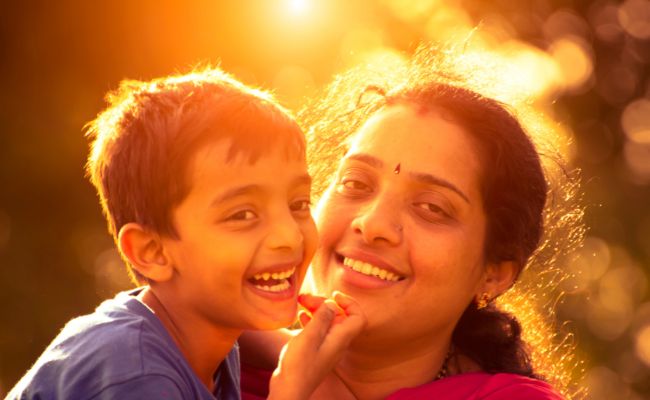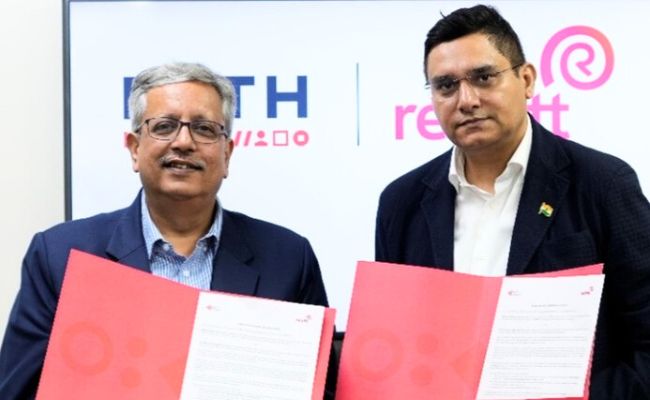New Delhi: Reckitt, in partnership with PATH and the Centre for Health Research and Innovation (CHRI), has launched an initiative – Maternal and Child Health Tech Accelerator. A mother’s wish is simple: for her child to begin life healthily. Yet, in many parts of India, especially in the underserved areas, this wish confronts many challenges. The period from pregnancy to a child’s second birthday, known as the first 1,000 days, is one of the crucial phases of life that shapes a child’s future. Picture a village where the closest doctor is miles away, monsoon rains wash out the roads, and the awareness around maternal and child health is scarce. For mothers and families living here, getting timely care can mean the difference between life and loss. In these moments, technology can become a vital lifeline.
This is the idea driving the Dettol Banega Swasth India Maternal and Child Health Tech Accelerator.
View this post on Instagram
It is a call to action to ensure healthcare reaches the last mile. How? By combining technology and local insights to deliver healthcare to areas where the resources are thin. The Accelerator will act as a catalytic platform – bringing together innovators, policymakers, and healthcare stakeholders.
It focuses on the first 1,000 days (from birth to age two) as this window significantly influences a child’s immune strength, brain growth, and overall development. Though India has made strides, maternal and child mortality rates are still high, particularly in 500 selected Aspirational Blocks – districts marked by social and economic inequality.
Talking about the initiative, Gaurav Jain, Executive Vice President – South Asia, Reckitt, said,
Through the Dettol Banega Swasth India – Maternal and Child Health Tech Accelerator, in partnership with PATH-CHRI, we aim to bridge the gap between innovation and impact. This initiative is about transforming bold ideas into scalable, real-world solutions that reach the last mile, strengthening systems, improving lives, and supporting India’s journey toward Viksit Bharat 2047. Together, our success will continue to positively impact communities, building an ecosystem where health and hygiene are universally accessible.
The Tech Accelerator pays attention to solutions that are ready to be used widely: practical, affordable, and inclusive innovations designed for real-world impact.
It focuses on key areas:
- Newborn and Child Health: Encouraging tools that support safe deliveries, enhance newborn survival, promote immunisations, and detect illnesses early. For example, portable devices that track vital signs or apps that notify caregivers about warning signs can help prevent complications.
- Maternal Health: Supporting technologies that boost care before, during, and after pregnancy. These solutions are vital in areas where traditional practices and limited healthcare facilities pose challenges to safe childbirth and postpartum care.
- Early Childhood Development: Promoting brain growth and early learning through low-cost tools and digital platforms that help children achieve important developmental milestones.
- Nutrition and Health: Developing innovations to fight malnutrition and anemia, which remain widespread, ensuring that children have a stronger, healthier start.
The Tech Accelerator is structured in a four-phase process to find, support, and scale impactful innovations. It will first focus on nationwide outreach to invite applications, followed by a rigorous application and shortlisting process to identify promising solutions. The selected innovators will participate in a grand challenge event and present their solutions to a jury.
The selected winners will receive mentorship and support to scale their innovations. The accelerator is looking for solutions with a Technology Readiness Level (TRL) of 9 – innovations ready for deployment and scaling. The innovators should bring affordable, tech-enabled solutions for health, nutrition, and safety, as well as tools for early detection, digital platforms for engagement, and scalable models for last-mile delivery.

The goal is to achieve a future where healthcare for mothers and children is not a luxury but a fundamental right
Neeraj Jain, Director, Growth Operations – Asia, Middle East and Europe, PATH, said,
We are proud to partner with Reckitt for the Dettol Banega Swasth India – Maternal and Child Health Tech Accelerator, an important step toward reimagining how we deliver on the promise of the first 1,000 days of life. This initiative aims to identify, nurture, and scale homegrown solutions that address long-standing gaps in maternal and child health. By bridging innovators with public health systems, we are not only supporting bold ideas but also shaping a future where every child in India has an equal chance to survive and thrive.

Neeraj Jain, Director, Growth Operations – Asia, Middle East and Europe, PATH, with Ravi Bhatnagar, Communications and Corporate Affairs Director, South Asia, MENARP and Africa, Reckitt
Dettol Banega Swasth India has always focused on reaching out to every individual with a message of health and hygiene. With this new initiative, the goal is to achieve a future where healthcare for mothers and children is not a luxury but a fundamental right. This vision aligns closely with India’s Viksit Bharat 2047 vision and the global Sustainable Development Goals (SDGs), highlighting a strong promise to health equity and growth powered by innovation.
NDTV – Dettol have been working towards a clean and healthy India since 2014 via the Banega Swachh India initiative, which in its Season 10 is helmed by Campaign Ambassador Ayushmann Khurrana. The campaign aims to highlight the inter-dependency of humans and the environment, and of humans on one another with the focus on One Health, One Planet, One Future – Leaving No One Behind. It stresses on the need to take care of, and consider, everyone’s health in India – especially vulnerable communities – the LGBTQ population, indigenous people, India’s different tribes, ethnic and linguistic minorities, people with disabilities, migrants, geographically remote populations, gender and sexual minorities. In a world post COVID-19 pandemic, the need for WASH (Water, Sanitation and Hygiene) is reaffirmed as handwashing is one of the ways to prevent Coronavirus infection and other diseases. The campaign will continue to raise awareness on the same along with focussing on the importance of nutrition and healthcare for women and children, fight malnutrition, mental well-being, self-care, science and health, adolescent health & gender awareness. Along with the health of people, the campaign has realised the need to also take care of the health of the eco-system. Our environment is fragile due to human activity, which is not only over-exploiting available resources, but also generating immense pollution as a result of using and extracting those resources. The imbalance has also led to immense biodiversity loss that has caused one of the biggest threats to human survival – climate change. It has now been described as a “code red for humanity.” The campaign will continue to cover issues like air pollution, waste management, plastic ban, manual scavenging and sanitation workers and menstrual hygiene. Banega Swasth India will also be taking forward the dream of Swasth Bharat, the campaign feels that only a Swachh or clean India where toilets are used and open defecation free (ODF) status achieved as part of the Swachh Bharat Abhiyan launched by Prime Minister Narendra Modi in 2014, can eradicate diseases like diahorrea and the country can become a Swasth or healthy India.




















